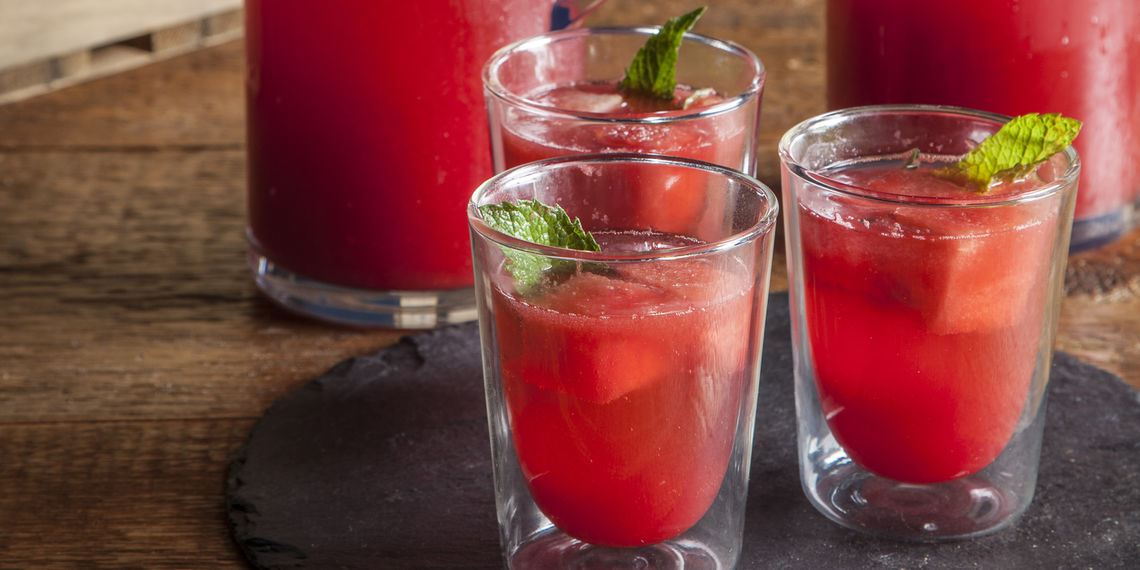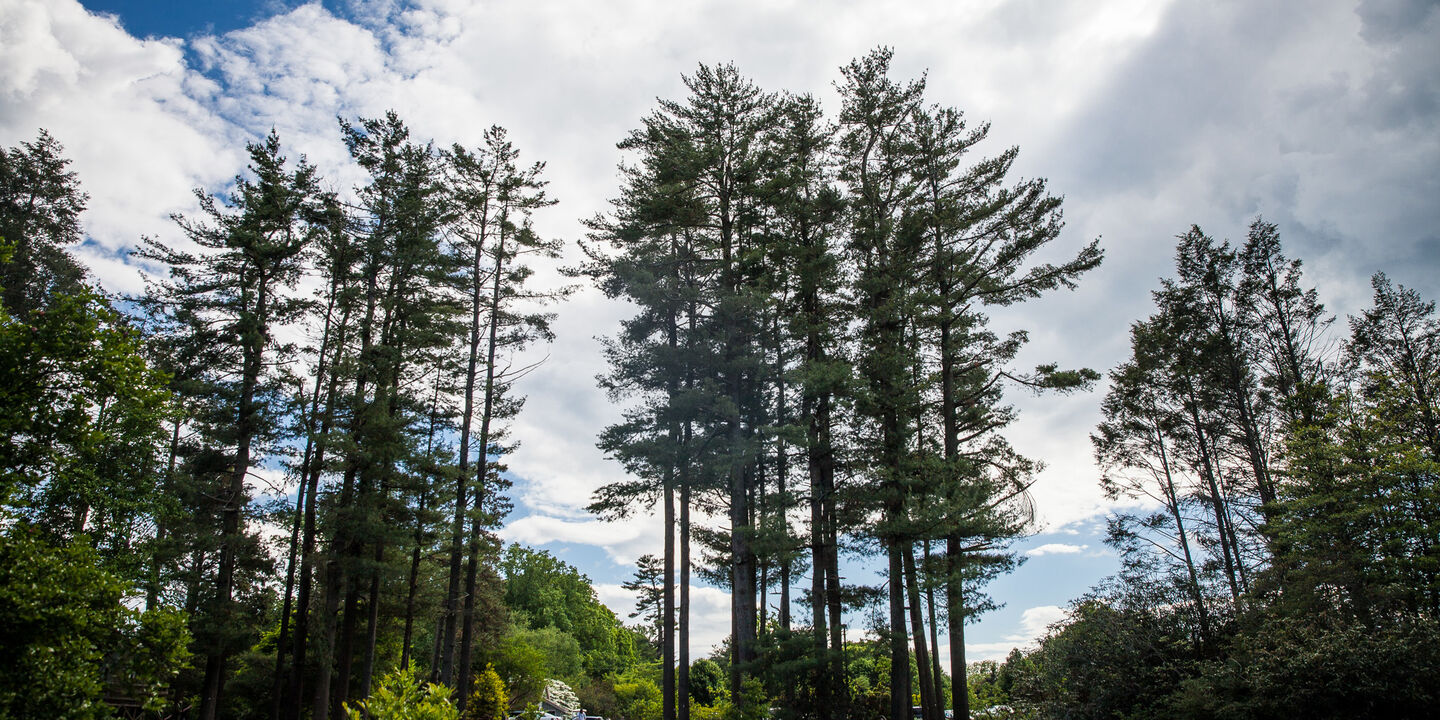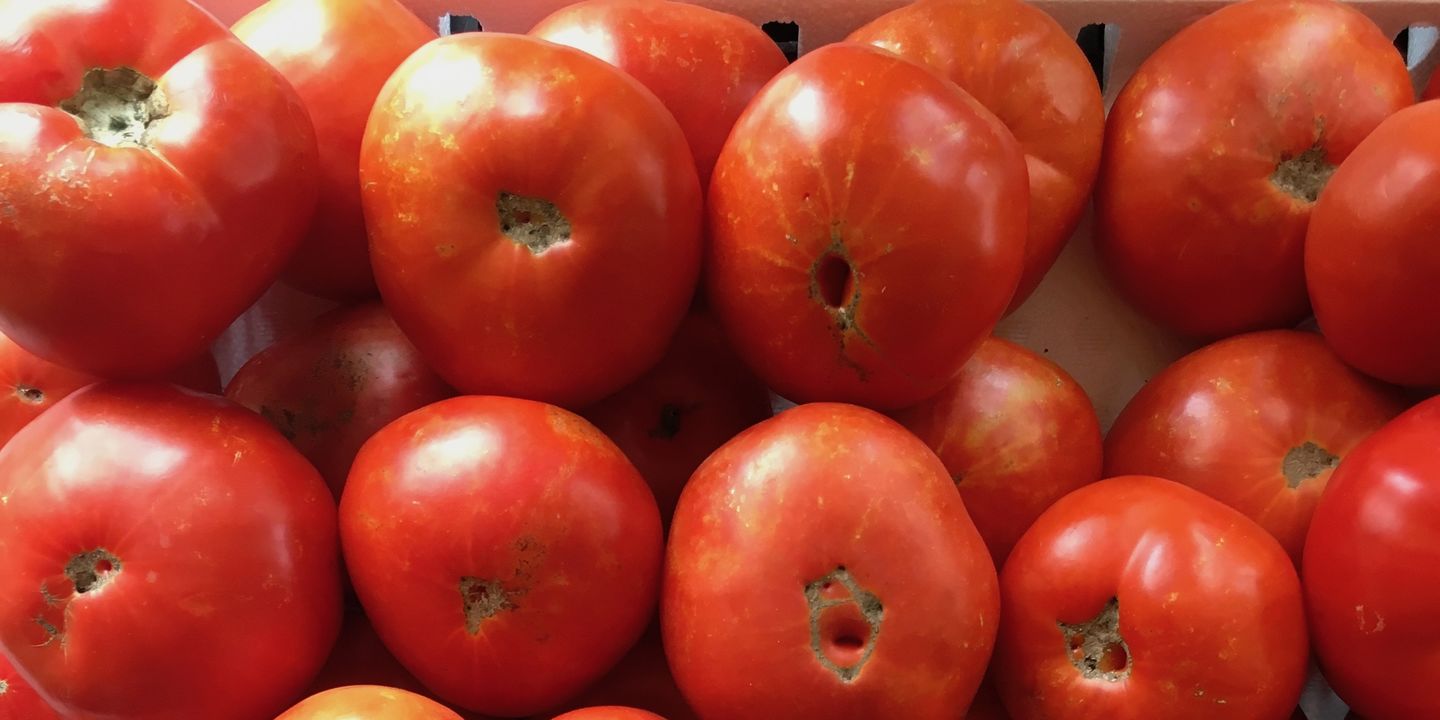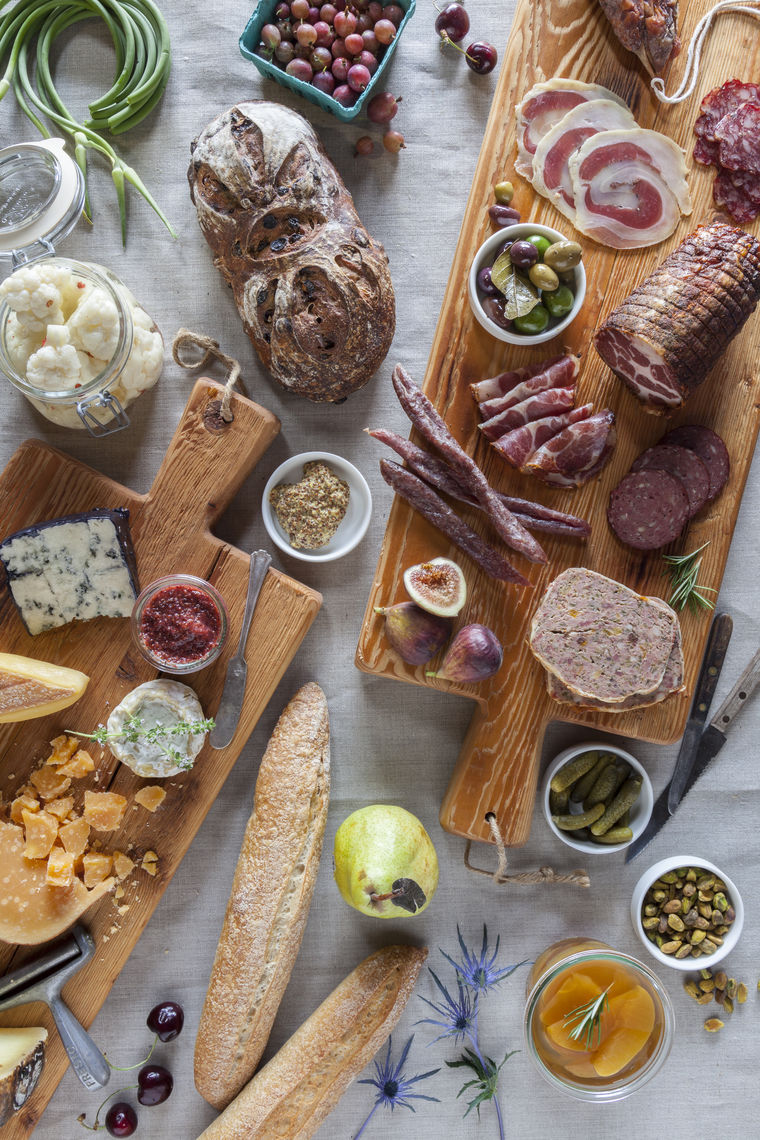Category: organic certification
Some Thoughts on the 50th Anniversary of EARTH DAY!
“Sustainability is the possibility that humans and other life flourish on the Earth forever.” — John Ehrenfeld
Fifty years ago, twenty million Americans took to the streets to protest industrial pollution and environmental destruction. It was the first “Earth Day,” a watershed event that gave ordinary citizens a chance to put their environmental concerns on the national agenda. Earth Day would eventually inspire the creation of the U.S. Environmental Protection Agency, along with new laws protecting the air, land, water, biodiversity, and health of Planet Earth.
Now, I myself wasn’t there. On that day, the young Jeff Miller was probably goofing off in class and reading comic books under his desk! But the spirit of Earth Day did somehow set the tone for how we’ve built JAM Catering. Like many caterers, we bring great food and service to the table, and we put on a great party. But our business also supports the worthwhile missions of our many partner venues, from the preservation of open spaces by the Heritage Conservancy to the conservation efforts of the John J. Audubon Center and Tyler Arboretum. Our newest venue, Bishop Farmstead, is a lovely bit of New Jersey with a beautifully restored barn and native grasslands filled with wildflowers, birds, and butterflies. It’s a gorgeous place to have a wedding, and every wedding we do there supports efforts by the Pinelands Preservation Alliance to protect the region’s unique natural lands and waterways.
Partnerships like these have generated millions of dollars to support worthwhile, sustainability-minded missions. It’s just one of many things we do to make sure our business has a net positive environmental impact. We are grateful for that first Earth Day–and for all the Earth Days since and those to come–for pointing the way.
–Jeff Miller
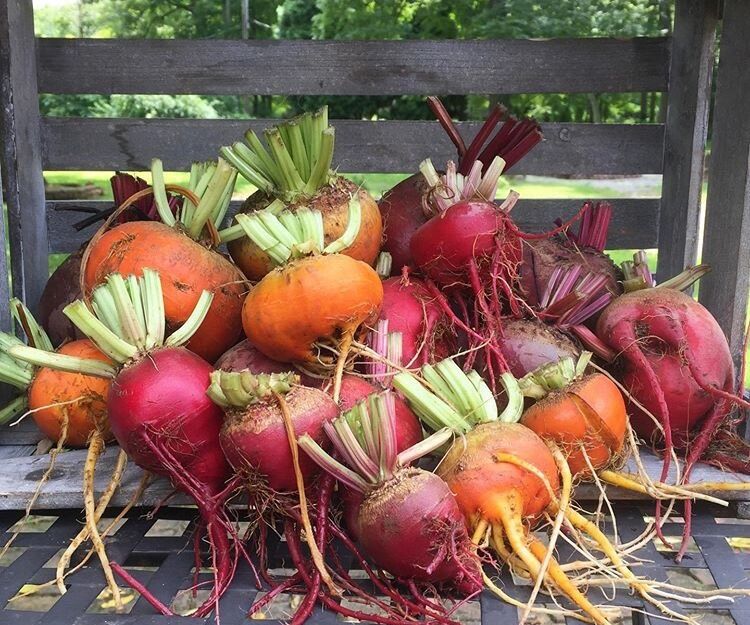
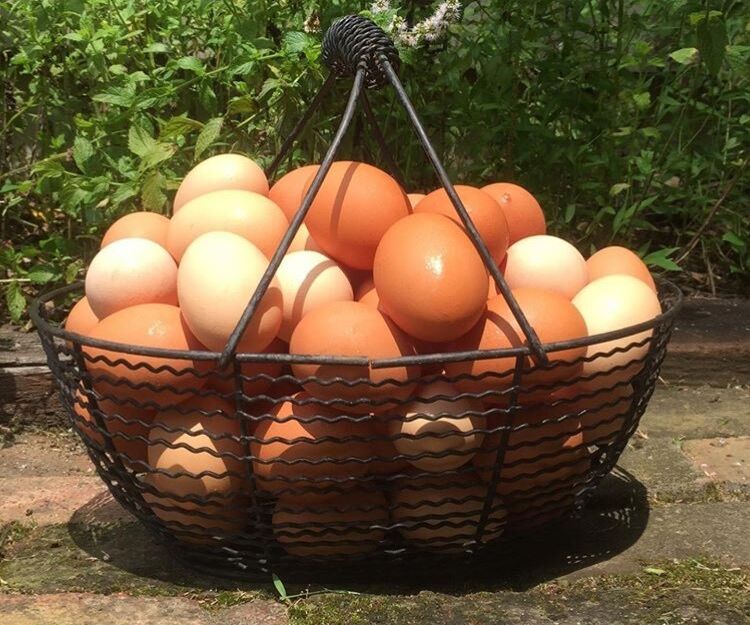
At Waterloo Village, JAM supports the preservation of land and history, and we get to cultivate our own organic produce, eggs, and honey!
Jeff and Gina, our Three Sisters farmer, filled us in about organic farming.
- When we started the farm with Jeffrey Miller, back in 2015, “we didn’t even have a single worm crawling in the dirt!” Gina Barkovitch, head farmer and gardener tells us. The space where we wanted to plant the gardens had been used to host festivals in historic Waterloo Village for many years. The ground was compact and extremely hard to dig into. With careful tilling, the addition of natural compost and the planting of cover crops to add nutrients to the soil, we have come a long way.
- The fruit trees we planted two years ago are now starting to bear fruit. In our effort to avoid a monocuture in our orchard we may have gone a little overboard. Our 40-plus trees include European and Asian pears, a variety of apples, peaches, plums and apricots and more.
- We have 2 active beehives. In addition to providing honey, native pollinators increase crop yields.
- Extensive paperwork must be kept up-to-date with specifics on each crop as well as current farm maps, purchase records and harvest yields for each crop. Written day-to-day farming and marketing records, covering all activities must be available for inspection at all times.

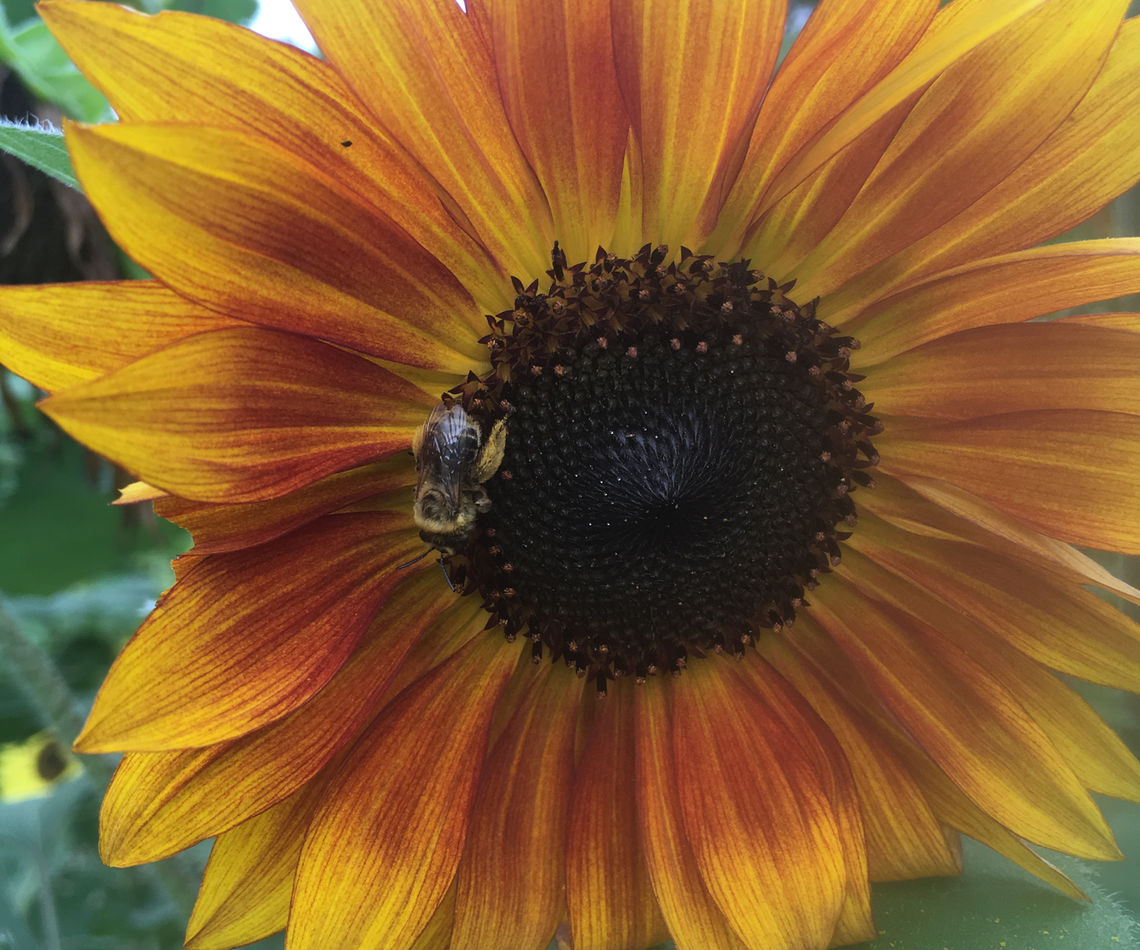
Some questions about organic farming for Jeff:
- Aside from Three Sisters Farm in Waterloo Village, how many organic farms do you work with directly?
JM: We have been working with a number of organic farms for several years through the Lancaster Farm Fresh CO-OP, as well as Weaver’s Way in Germantown.
- Some might say organic farming is an old-fashioned way of doing things- what would you say to those who are new to the organic movement?
JM: Sometimes the old ways are the best ways! Best for the health of the land, the waterways, and for those of us living now on earth, and our children and their children to come.
- You have worked in kitchens around the world- Do you see a difference between American and say, European chefs using organic produce?
JM: I have not worked in Europe for several years, but I know that Europe started the organic food movement in the 1920’s, and Sweden has hosted a “Nordic Organic Chef’s Competition” for several years now, so European chefs are already into organic. Europe has it’s own stringent standards a grower must meet in order to get a license to sell organic products. In many ways, Europe is more environmentally sensitive than we are here in the US – we have some catching up to do.
- Lastly, why is organic farming so important to you?
JM: Organic is important to me because I have become concerened about the harm that traditional farming is doing to the oceans, to the land, and to our health. The fertilizers that are used in farms can get washed into the oceans where they create algae blooms that are huge dead zones in the ocean. The pesticides used in farming contaminate the aquifers- which is our drinking water. Additionally, organic farming, by avoiding pesticides, helps preserve the health of beneficial insects like honeybees, which we need to pollinate our fruit and vegetables, as well as other wildlife.
